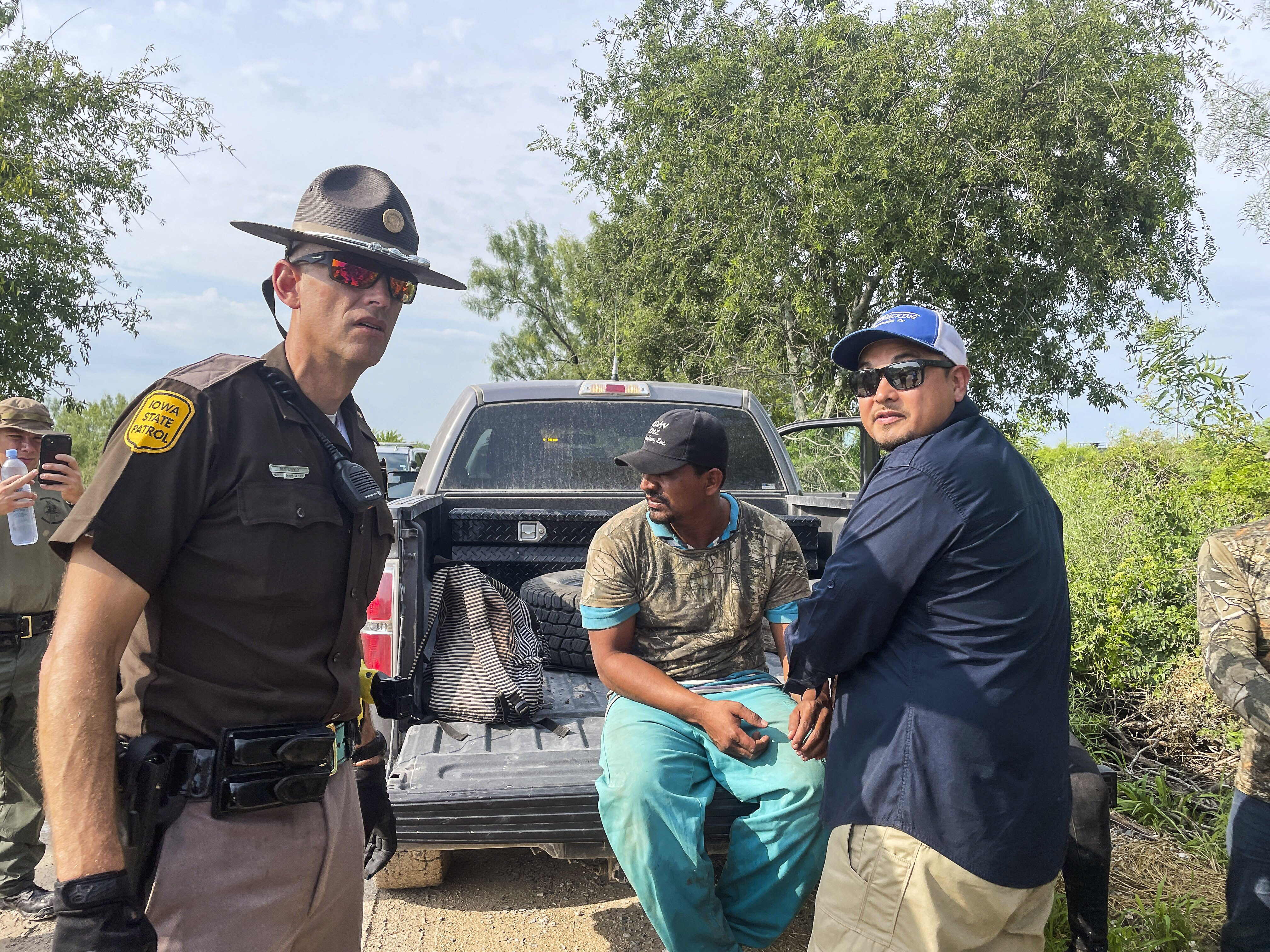
Iowa attorney general Brenna Bird has vowed to appeal the decision.
A federal judge has temporarily blocked Iowa from enforcing a new law that criminalizes illegal immigrants who have been denied entry into the United States and mandates that state judges order their return to their country of origin.
U.S. District Judge Stephen H. Locher ruled on May 17 that Senate File 2340, signed into law by Gov. Kim Reynolds, a Republican, in April, is preempted by federal immigration law.
The decision comes after Ms. Reynolds vowed to enforce the law even though the Department of Justice (DOJ) threatened a lawsuit to block it last month.
The DOJ and the Iowa Migrant Movement for Justice (Iowa MMJ), a legal service and advocacy organization in Des Moines, argued in separate lawsuits that the state law conflicted with federal immigration statutes and the Supremacy Clause of the U.S. Constitution. Although the lawsuits weren’t consolidated, the court held a single hearing on the matter and issued a single ruling on both motions.
“Under binding Supreme Court precedent, Senate File 2340 is preempted in its entirety by federal law and thus is invalid under the Supremacy Clause,” Judge Locher wrote.
Iowa’s New Law
The motion for a preliminary injunction was granted against Senate File 2340, pending further proceedings.
Senate File 2340 created two new criminal offenses under Iowa law. The first applied to “noncitizens” who entered or attempted to enter the state after being denied admission or deported from the United States. The second offense targeted illegal immigrants who failed to comply with state court orders to return to their countries of origin.
The law also prohibited state judges from reducing prosecutions for these offenses, even if the individuals involved were seeking relief under federal immigration laws.
In response to the decision, Iowa Attorney General Brenna Bird, who last month said that the Hawkeye State would not “back down” in the face of what she deemed a threat, promised to appeal.
“I will be appealing the court’s decision today that blocks IA from stopping illegal reentry and keeping our communities safe,” Ms. Bird said in a post on the social media platform X.
The DOJ argued in court documents that the Iowa law undermined the federal government’s exclusive authority over immigration matters and risked upsetting foreign relations and retaliatory actions.
Eric Jacobstein, deputy assistant secretary in the Bureau of Western Hemisphere Affairs at the State Department, told the court that “it is critically important that national immigration policy be governed by a uniform legal regime, and that decisions regarding the development and enforcement of immigration policy be made by the federal government, so that the United States can speak to the world with one voice.”
Iowa MMJ cited potential harm to illegal immigrants who could face state prosecution despite being lawful under federal law, as well as broader disruptions to federal immigration policy and international relations. The group, which provided legal services to 2,400 illegal immigrants last year, argued that its ability to improve the lives of “noncitizens” will be diminished if the law is enforceable.
In addition to legal representation, the group aims to improve the lives of illegal immigrants through issue campaigns, narrative change, coalition building, and civic engagement.
Erica Johnson, Iowa MMJ’s founding executive director, told the court that the law divert her organization’s resources toward defending clients in legal matters, reducing the number of clients it could serve. It may also jeopardize its funding. Additionally, resources have already been spent on opposing the measure and educating the community on its consequences, rather than the group’s “core” functions.
Judge Locher’s ruling said immigration enforcement is a federal prerogative, and the Iowa law “does not permit federal immigration law to run its course,” conflicting with established federal procedures.
The provisions in the state law that require Iowa state court judges to issue orders to send illegal immigrants to the foreign country from which they came makes the problem “even worse,” the judge added.
“Congress has established an intricate and specialized system, with multiple layers of review by trained immigration officials and judges, for determining when someone can be removed from this country and where they must go,” the judge wrote. “Importantly, noncitizens are not always returned to the foreign nation from which they came; instead, there are sometimes national security, border security, or foreign affairs reasons for sending them elsewhere.”
The new Iowa law was due to take effect July 1.










